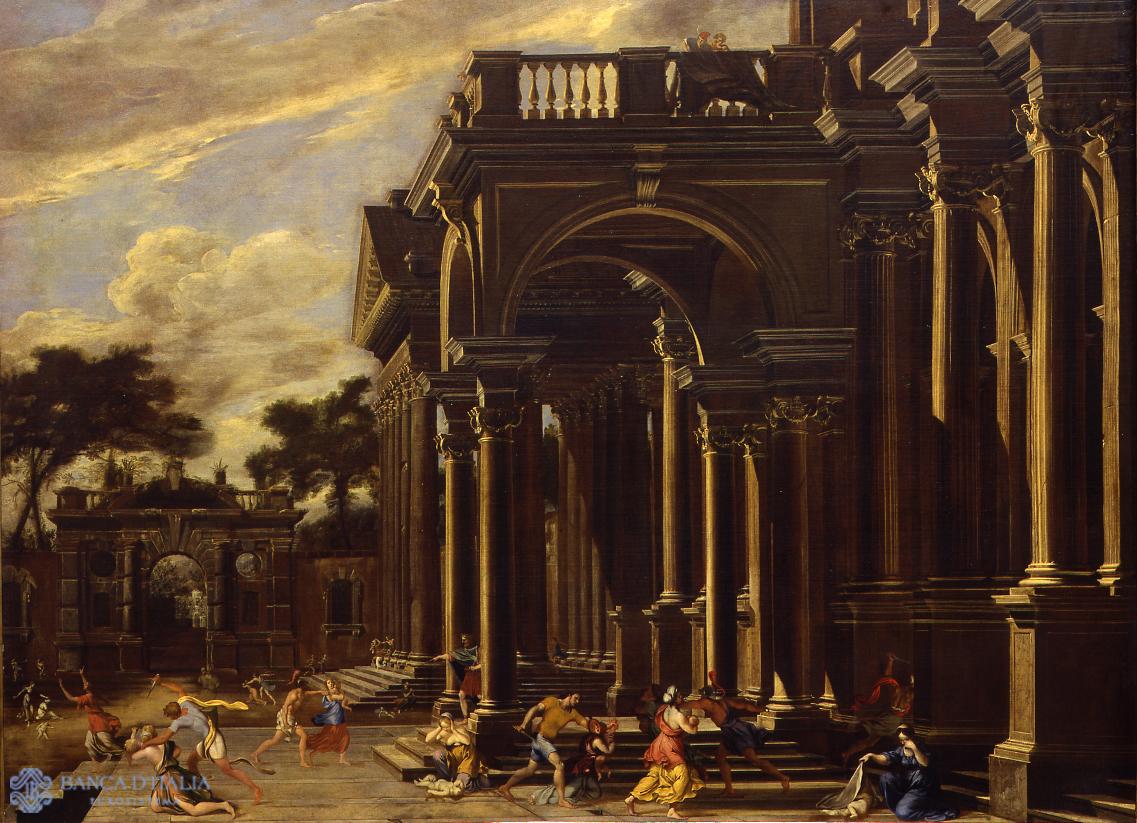The theme of the Massacre of the Innocents is merely an expedient, dear to Codazzi, that enables him to create a spectacular architectural composition. And, indeed, the figures in this episode from the Gospel do not crowd the scene but seem lost in it. The imposing building in the foreground, from which a balconied loggia projects, and the adjacent classical temple, its pronaos modelled on the Pantheon, rigorously follow the lines of perspective. In the background, the wall of a park and a rustic doorway reminiscent of an entrance to a seventeenth-century Roman villa form the wings of this set.
Viviano Codazzi’s painting reveals the influence of the Bamboccianti movement and the particular philosophy that Agostino Tassi introduced in the Papal capital. Unlike the classical landscapes depicted by the painters from Bologna and France working in Rome, Codazzi, from Bergamo, painted ruins of ancient buildings and sometimes created complex, imaginary architecture. The painting is not an isolated piece but a companion to Exedra with the Opening of a Tomb and was clearly executed during the artist’s mature years as it displays both a complete mastery of perspective and a skilful handling of light. Indeed, the role of light is crucial as it gives the magnificent architecture a dramatic feeling. The lively figures are probably the work of another painter, perhaps the Neapolitan artist Micco Spadaro.
Viviano Codazzi, Strage degli Innocenti
Massacre of the Innocents
17th century AD
Painting
Biblical - Historical - Mythologic

Artist
Date
1630s
Material and technique
Oil on canvas
Measurements
145 x 196 cm
Compiler
Alessandro Zuccari
